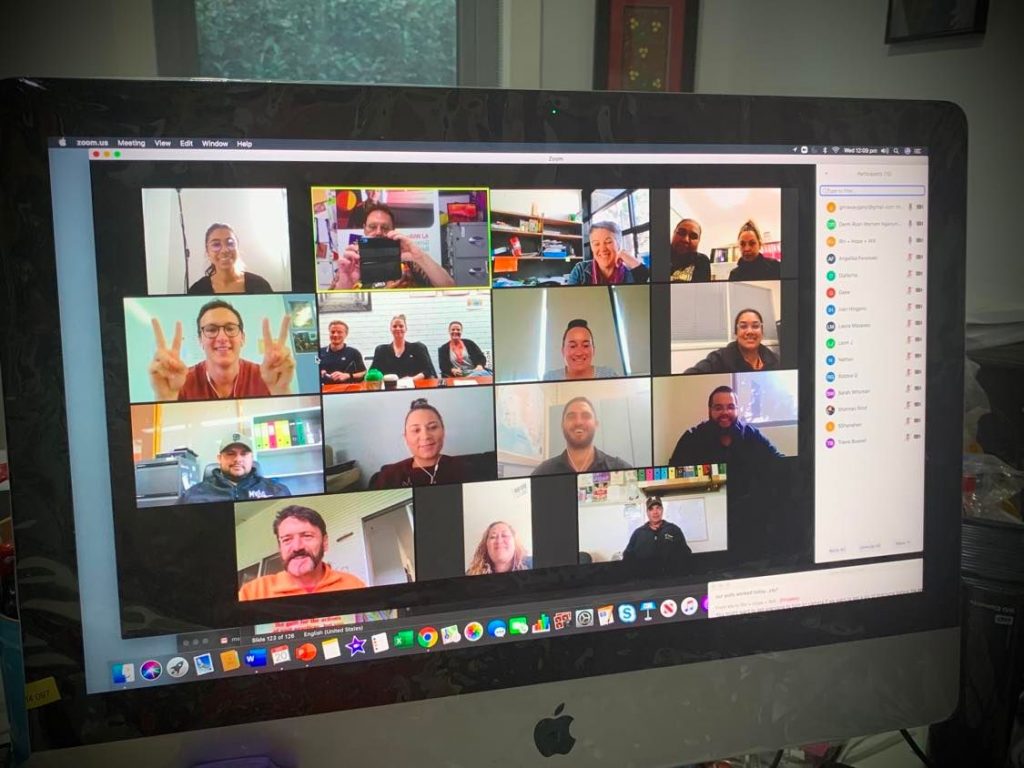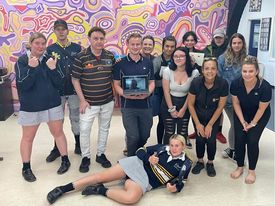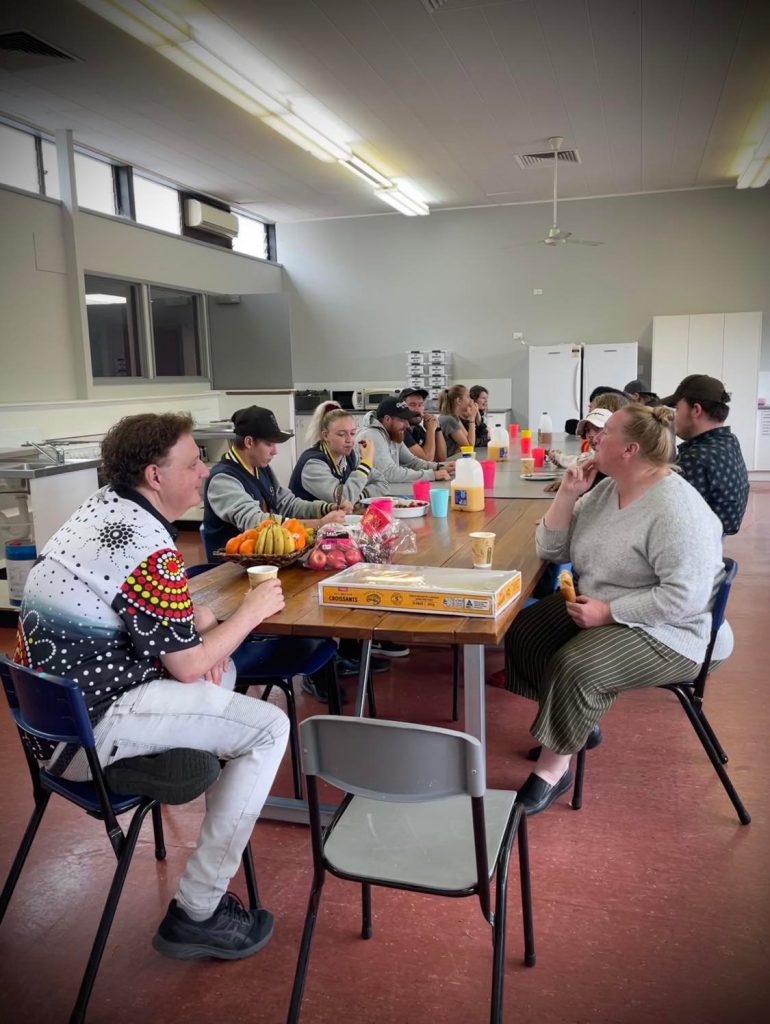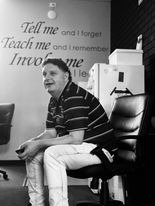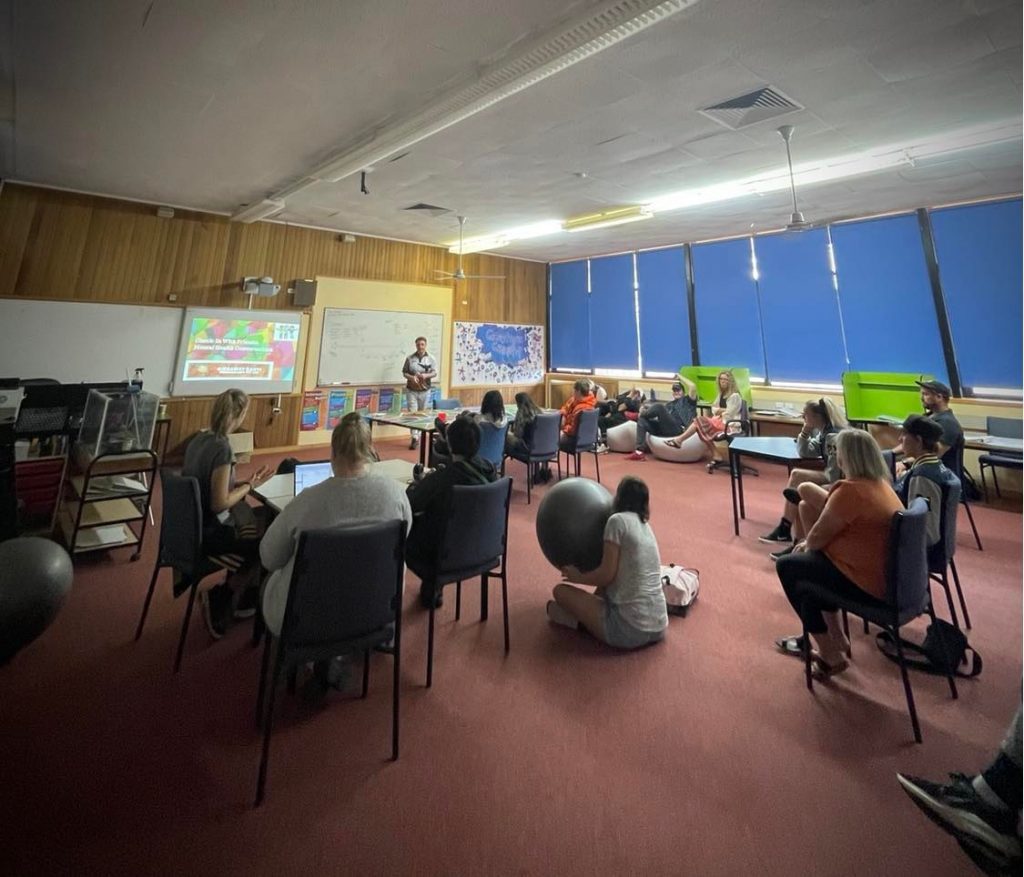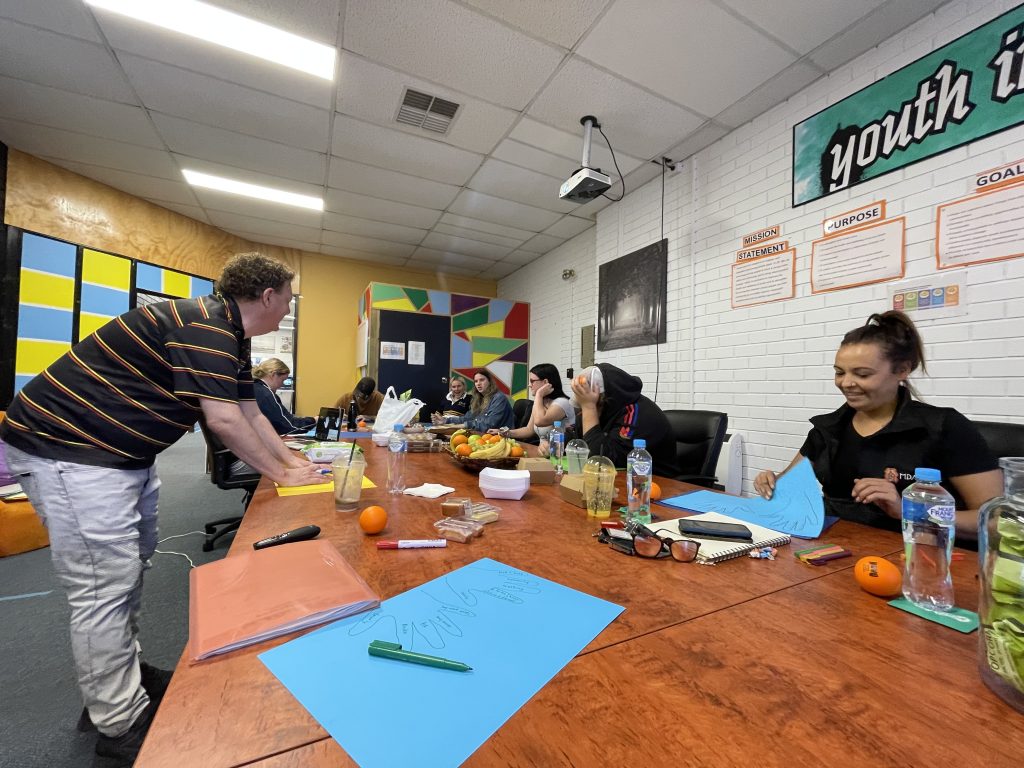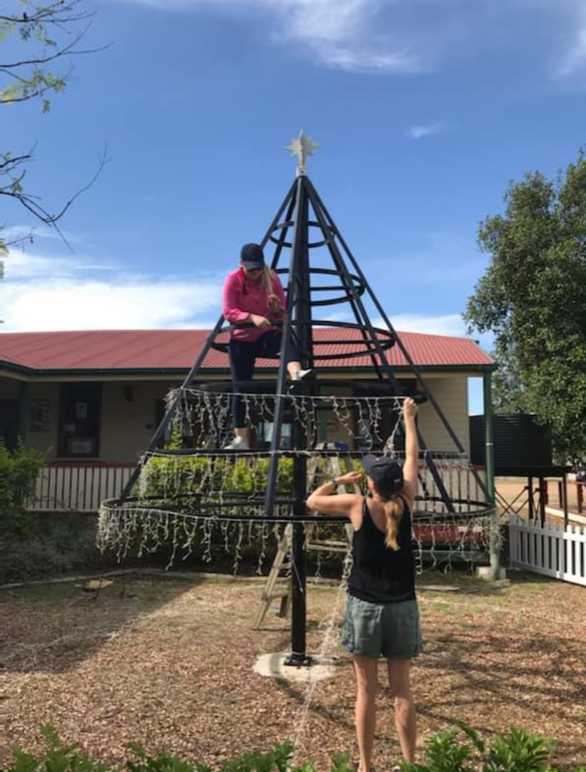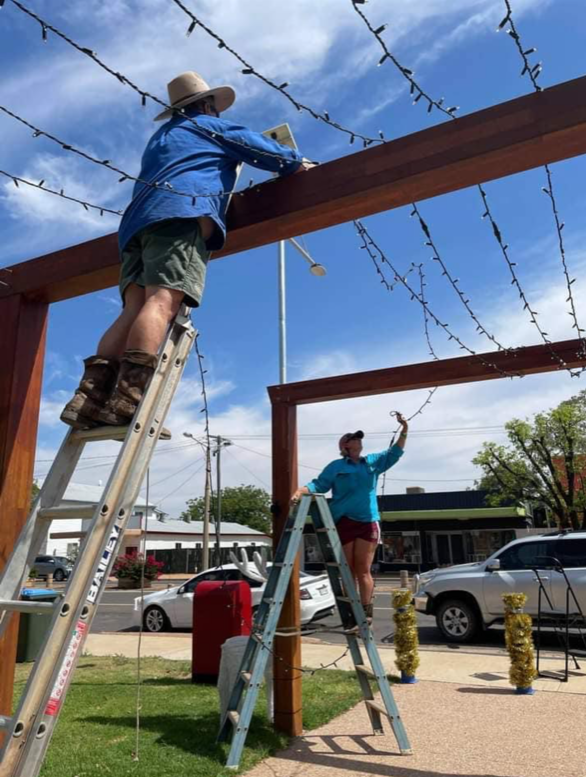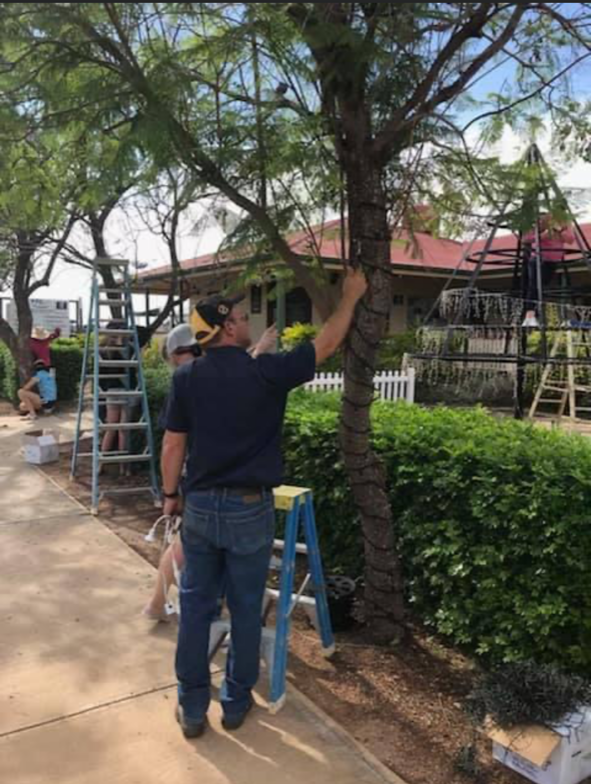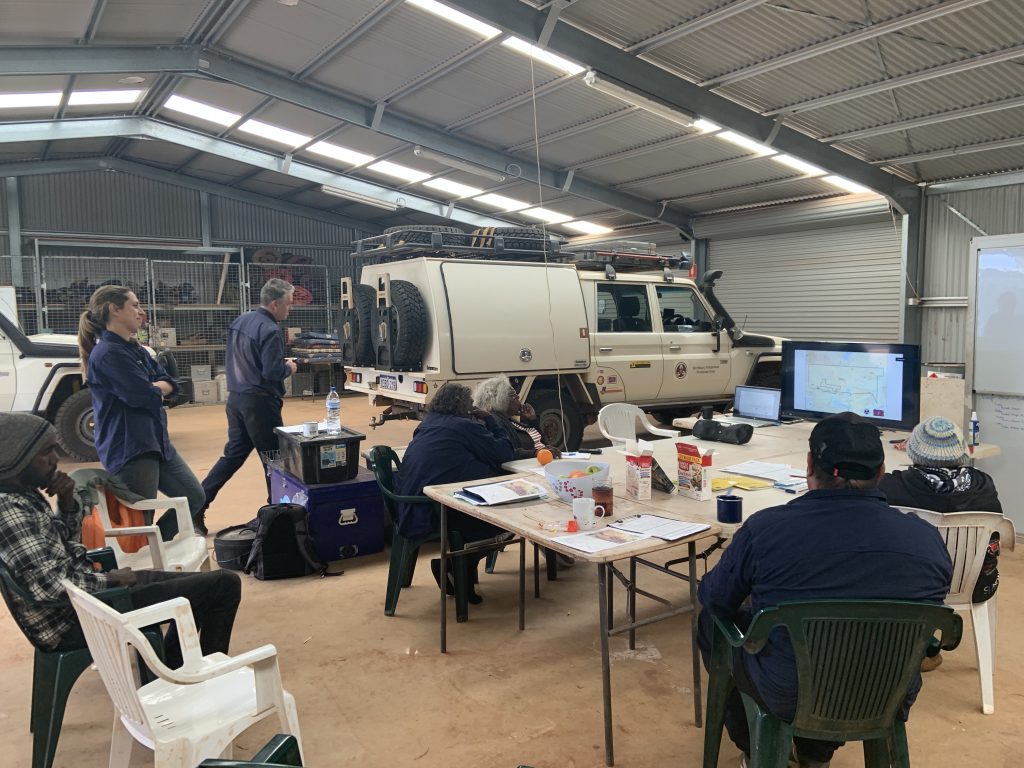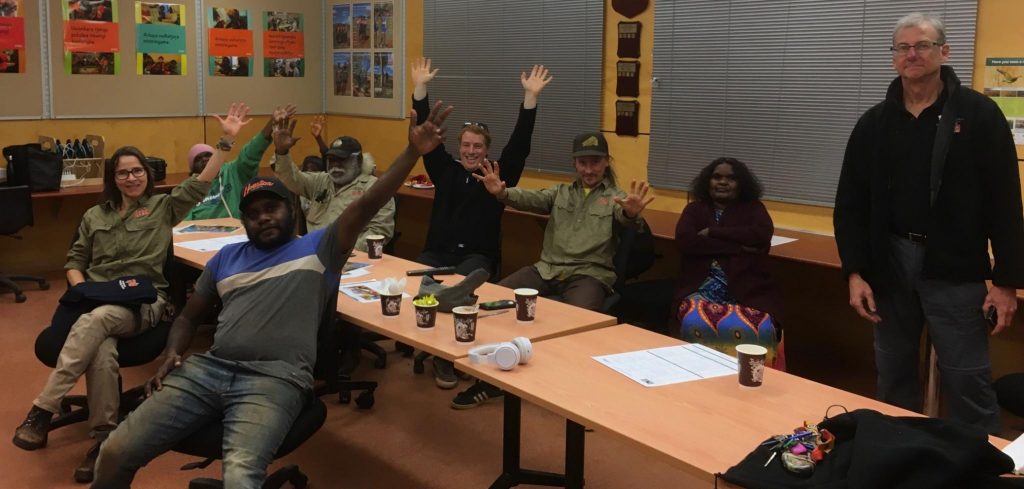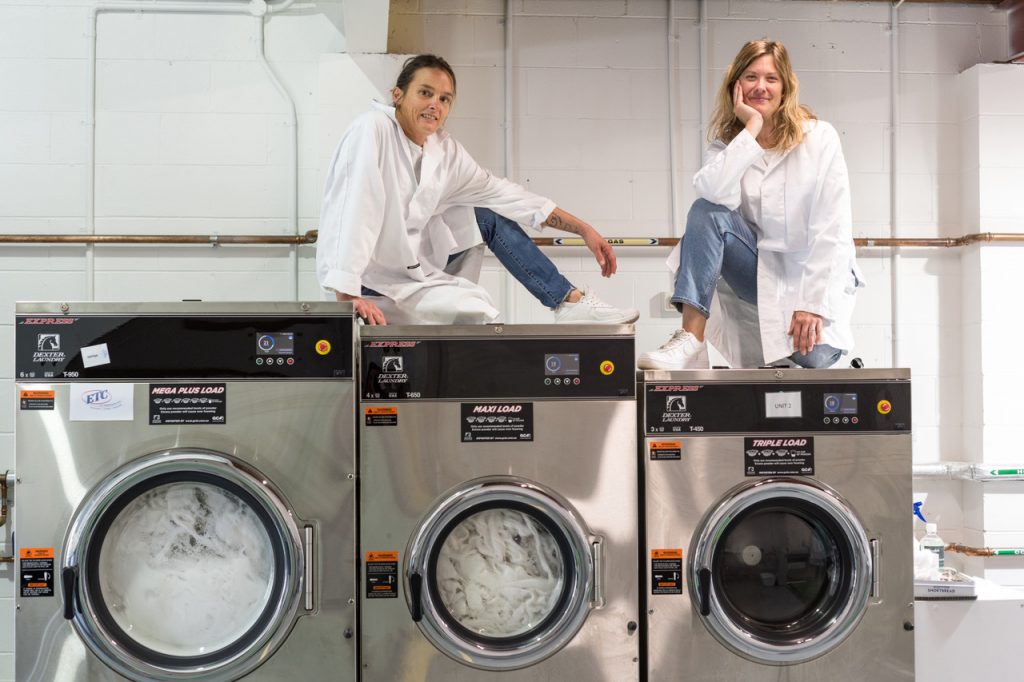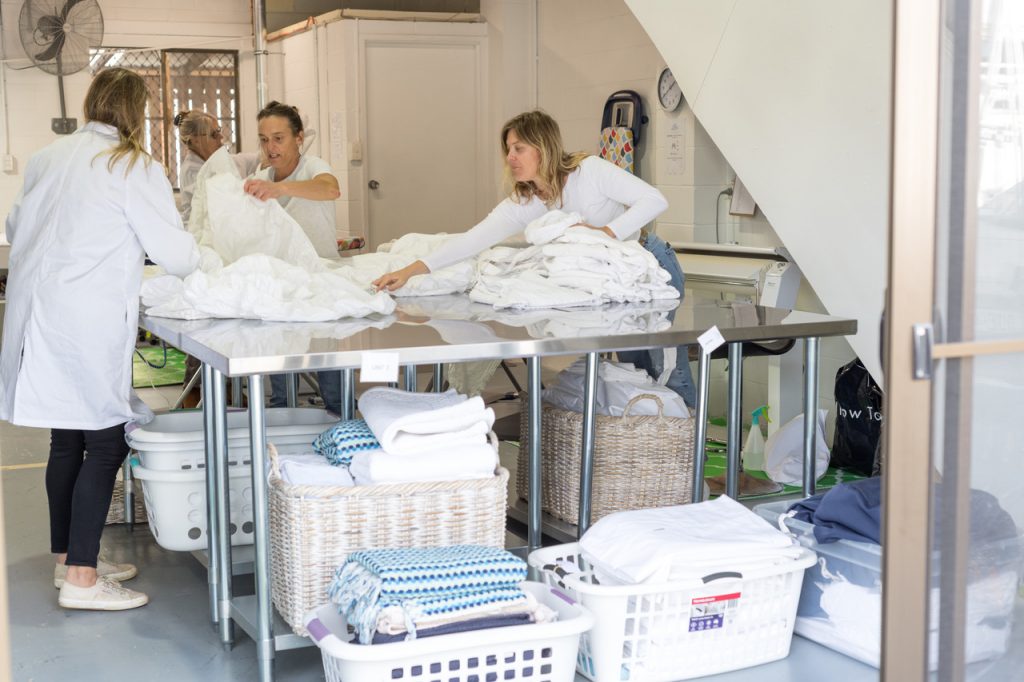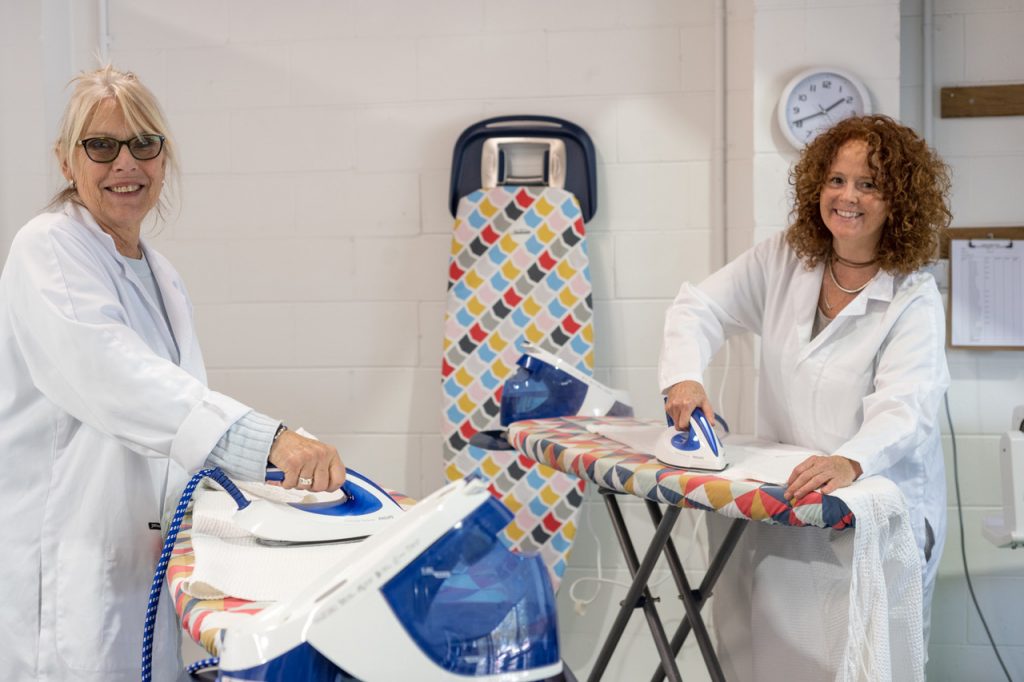Foundation for Rural & Regional Renewal (FRRR)
$200,000 available to fund community-led mental health projects
Remote, rural and regional communities across Australia can apply now for grants through FRRR’s In a Good Place (IAGP) program to support community-driven activities focused on mental health and wellbeing. Offered in partnership with CCI Giving, there is $200,000 available through grants of up to $20,000 for projects that support vulnerable community members at risk of, or experiencing, mental health issues.
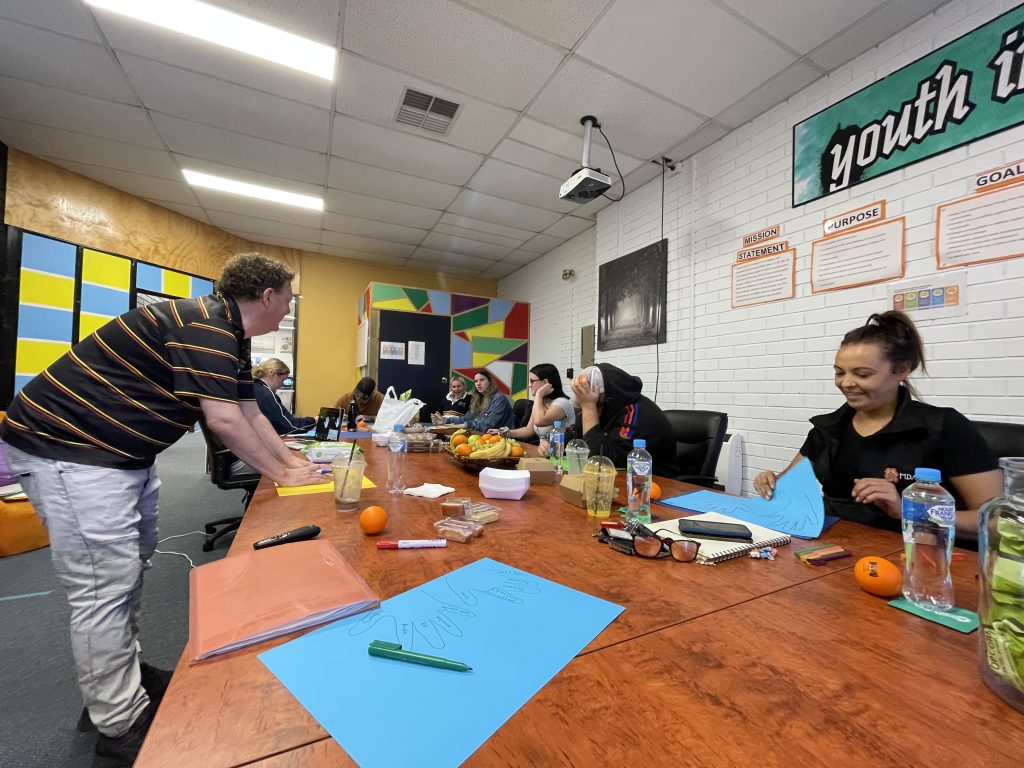
The program supports a range of approaches that are preventative or responsive in nature, and clearly and directly focus on strengthening mental health and wellbeing. These include initiatives that increase social participation and connections with the community, and reduce stigma surrounding mental health by encouraging open discussion and supporting self-help-seeking.
Jeremy Yipp, CCI Chief Risk Officer and Chair of CCI Giving, said that greater access to mental health services and support is vital to those living in rural communities, particularly following times of crisis.
“Rural and remote communities continue to be affected by events such as fires and flooding, and in recent years the pandemic. It’s more important than ever to encourage people to stay connected and seek support, especially for those living in places with limited access to mental health services.
“Our partnership with FRRR helps CCI Giving reach remote, rural and regional communities, to build and nurture social connections and community participation, and provide access to mental health training and education,” said Mr Yipp.
Jill Karena, FRRR’s People Programs Portfolio Lead, said that the events of the past few years have highlighted the need for rural Australia to have equitable access to mental health services and support.
“The impact of the pandemic, and the subsequent isolation, is still being felt and understood. But clearly, access to mental health tools, services and support that are driven by community need, are critical to improving and strengthening the mental health of remote, rural and regional Australians, particularly younger members of the community.
“As an example, through the IAGP program, the Youth Affairs Council Victoria (YACVic) in Swan Hill received funding of $13,480 to deliver a culturally specific Mental Health First Aid (MHFA) training program and establish a local support network – Deadly Yarning & Learning, targeting Aboriginal and Torres Strait Islander young people.
“Although initially intended to be delivered face-to-face, the COVID pandemic and lockdowns caused serious disruptions to the project. Instead, most training took place online. Aboriginal and Torres Strait Islander young people gained vital skills in MHFA, connected with each other, relevant workers and service providers, and increased their confidence and leadership skills while helping to shape local, culturally safe responses to mental health.
“Our partnership with CCI Giving means we can support these kinds of community-led approaches to mental health services that respond to community need and are accessible for people in rural areas who may otherwise have difficulty accessing services,” Ms Karena said.
Applications open on 20 April 2022. As in previous years, FRRR expects this will be a highly competitive program and so there is a two-stage application process. A brief Expression of Interest must be submitted no later than 5pm AEST, Wednesday 25 May 2022. The Expression of Interest form and more information is available on FRRR’s website – https://frrr.org.au/funding/place/in-a-good-place/. Applicants can also call 1800 170 020.
The IAGP program is the centrepiece of a partnership between FRRR and CCI Giving which has just been extended for a further five years, to run until 2027. Since the partnership began in 2018, IAGP has awarded $800,000 in grants to 53 community-led initiatives that promote good mental health and wellbeing in remote, rural and regional communities.
$1.25m in grants to be made available
The Foundation for Rural & Regional Renewal (FRRR) and CCI Giving have agreed to a five-year extension to their partnership and national grants program, In a Good Place (IAGP). This means that the grant program will now run until at least 2027.
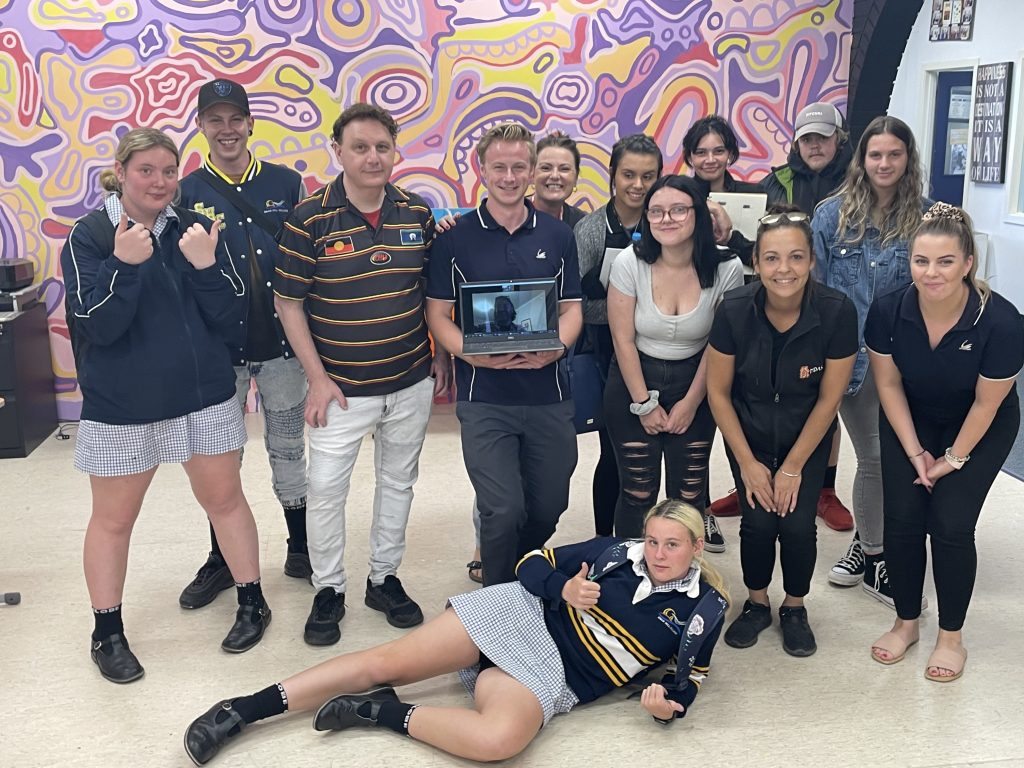
CCI Giving has also made a commitment to increase the funding available each year by $50,000, meaning that there will be $250,000 available to applicants annually, starting next year.
The partnership between CCI Giving and FRRR began in May 2018 and, since then, $800,000 in grants have been awarded to 53 projects across remote, rural and regional Australia through the IAGP program.
This program strengthens mental health in rural communities by supporting locally-led initiatives that reduce social isolation, increase social participation and connectedness and encourage people to seek help in tackling mental health challenges.
Jeremy Yipp, CCI General Manager, General Insurance Claims and Chair of CCI Giving, said that they are committed to providing rural Australians with greater access to mental health care.
“There are many stressors when it comes to mental health and, sadly, the pandemic has exacerbated these, particularly among young people living in rural areas who don’t have the same access to mental health services as those living in cities.
“There are key groups working on the ground, at the local level, who we want to ensure have the support to implement initiatives that they know will make a difference.
“We are always stronger when we work with others, and we are delighted to be extending our relationship with FRRR. I know that working closely with FRRR is vital to the impact and effort of the many organisations who are supporting communities and people who are at risk of mental ill health. Five years and additional funds is something to really celebrate,” said Mr Yipp.
Natalie Egleton, CEO of FRRR, said that this commitment from CCI Giving provides much-needed certainty to rural Australia.
“Historically, remote, rural and regional communities across Australia haven’t had the equity of access to the mental health and wellbeing resources that they need. With the added pressure of the challenges that these communities have faced in recent years, access to these kinds of services is now more crucial than ever before.
“Our Heartbeat of Rural Australia survey showed that as a result of consecutive natural disasters and the pandemic, there has been lowered resilience, increased fatigue and stress, and high levels of mental health illnesses in rural communities. CCI Giving’s commitment of increased grant funds and the certainty of it being on offer for the next five years, provides these communities with security and greater access to funding for community mental health projects that can have a profound impact for those involved.
“At FRRR, we have loved working alongside CCI Giving, providing support and tools to these vital, community-led initiatives. We couldn’t be more delighted to announce the five-year extension of our work together,” Ms Egleton said.
The next round of IAGP grant applications will open 20 April 2022. To find out more about this program go to https://frrr.org.au/funding/place/in-a-good-place.
Youth mental health is an issue that many organisations and communities across the country work hard to improve. Raising awareness through conversation and proper guidance is crucial to improving and strengthening the mental health of young Australians. In the northwest of Victoria, you’ll find the city of Swan Hill where Youth Affairs Council Victoria (YACVic) are doing just that. As the leading advocate for young people aged 12-25 in Victoria, they work closely with young Victorians and the sector to support them and deliver effective advocacy.
Over the past two years, YACVic have hosted the ‘Turning Ideas into Action’ and ‘What Matters’ youth forums across Victoria. Through these forums, young people have identified mental health as a major priority. A report conducted in 2010 (Working Together: Aboriginal and Torres Strait Islander Mental Health and Wellbeing Principles and Practice) identified young Aboriginal people are at increased risk of experiencing mental illness and are also less likely to engage with mainstream youth mental health services. To improve this situation, YACVic wanted to create a space that would be culturally safe and relevant for Aboriginal and Torres Strait Islander youth.
YACVic sought funding to deliver culturally specific Mental Health First Aid (MHFA) training program – Deadly Yarning & Learning. The training session would target 20 Aboriginal and Torres Strait Islander young people and then ten additional people to work with them on a regular basis as mentors in Swan Hill and Robinvale. The training would be provided by AJ Williams-tchen from Girraway Ganyi to make sure that both the content and delivery is done in a competent and safe manner.
Using a $13,480 In a Good Place (IAGP) grant, supported by CCI Giving, YACVic would partner with local services in the area including Mallee District Aboriginal Services and Robinvale Secondary College to provide the training over two days in each location. The following six months would then involve regular monthly community of practice sessions for the 20 participants to discuss how they have been able to put into practice their training since the initial sessions. The catch ups would also be used as a safe space for debriefing and continued peer learning and development, but also as a way to identify any key issues that had arisen in the community.
After having one training session in each location, YACVic were required to quickly adapt the original plan, with the COVID pandemic and lockdowns causing serious disruptions to the project. To ensure the safety of everyone involved, YACVic decided to postpone the face-to-face youth training component of the project until restrictions eased. They were, however, able to take the mentor training online, which proved to be quite beneficial as they were able to bring five more people on as mentors.
By undertaking the training and participating in the monthly community of practice sessions, Aboriginal and Torres Strait Islander young people will gain skills in MHFA, connect with each other, relevant workers and service providers and increase their confidence and leadership skills while helping to shape local, culturally safe responses to mental health.
The town of Dirranbandi, in southwest QLD, was suffering from a lack of Christmas cheer and the general community spirit was a bit flat, following relentless drought over many years. This was also having significant impacts on mental health.
In a bid to tackle these issues, while also putting Dirranbandi on the map for both tourists and locals, the Dirranbandi Progress Association used a $60,000 Tackling Tough Times Together grant, funded by the Australian Government to spark some joy in the township with a stunning lights installation.
With the support of Balonne Shire Council, the Dirranbandi Progress Association brought local tradespeople on board, as well as their local Arts Council, the business community and a work camp, which consisted of skilled prisoners who were being reintegrated back into society. Together, this dedicated team of people designed and fabricated a beautiful display of fairy lights that were installed and displayed throughout the main streets of their town all year round.
Alongside the permanent display, the grant funded Christmas lights, which is the main feature of an annual event attended by around 300 people. Locals from the around the community gather for a BBQ and watch the Christmas lights being turned on, while school children sing carols and everyone embraces the magic of Christmas.
Since having the lights installed and hosting these events, the local community, which was crippled by drought, has been able to congregate, reconnect and have its vibrant spirit reignited. As an added benefit, the local council committed to providing extra support and resources, not only for Dirranbandi, but for surrounding towns as a result of the project.
Mental Health training helps community get in a good place
With the effects of plunging milk prices and bushfires in South West Victoria, the community was feeling strained. Front line workers were regularly being confronted with people breaking down because they couldn’t pay their bills, afford feed for their stock or feeling financial pressure.
The Simpson & District Community Centre (SDCC) knew it was important to keep the conversation about mental health in the community open, to continue to break down the stigma associated with asking for help. So, they wanted to equip local community members with the skills to recognise mental health issues and provide resources for referrals to support services, as well as give them skills in self-care, given they were dealing with more and more people in crisis.
SDCC was established almost four decades ago to support Western Victorian dairying communities. Around 50 people a week use its facilities for meetings and activities – from craft, scrabble days, children’s activities, adult education, digital literacy, a Men’s Shed programme and more. The centre puts considerable effort into reducing social isolation and increasing health and wellbeing in the area.
The Simpson area has been supported by a Dairy Community Support Officer who works with farming community families in crisis. In three years, the social worker’s client numbers went from 9 to 98. She identified a number of mental health issues facing the community including anxiety, depression, drug and alcohol abuse and self-imposed isolation. The community has had one suicide since the beginning of the dairy crisis and wanted to do whatever was needed to prevent more.
Through the In a Good Place Program, funded by CCI Giving, FRRR was able to help fund the delivery the training. In March 2019, nine community members participated in a two-day Mental Health First Aid course. Another session ran in March 2020, with a half day refresher for the previous years’ participants.
In total, 16 members of the community were provided with the training and skills to identify and start a conversation regarding mental health. Those trained included workers from the local supermarket and Post Office, stockfeed supplier and vet group, as well as dairy farmers and volunteers from the Football Netball Club, Men’s Shed, Community Centre, Cricket Club, CFA and Landcare network. The array of participants meant that there was great community coverage, with everyone attending wearing “more than one hat” – so those new skills are going into nearly every organisation and workplace in Simpson.
Furthermore, the instructor for the First Aid program and the Dairy Community Support Officer were able to identify an opportunity to secure funding for additional training that will reach the community, regarding Mental Health in the elderly population. Transitioning off farms for older people is an area of mental health difficulty that the Support Officer sees first hand in her work in the community.
The SDCC maintains that if just one person can be supported through a crisis without a tragedy, then the program will be a success.
“Training more people in the community to recognise the signs and direct them to help or help to them can only improve the long term outcomes for our community and increase the resilience and sense of connection.
“By providing the training we are giving people the skills to take back into the community at their workplaces, homes and recreation activities. The more people who are able to recognise and respond to the signs of deteriorating mental health the stronger our community will be. These skills will be maintained for life and can be shared.”
SDCC Final Report
Congratulations to the SDCC for the great strength and support they provide and their ability to adapt to the community’s changing needs.
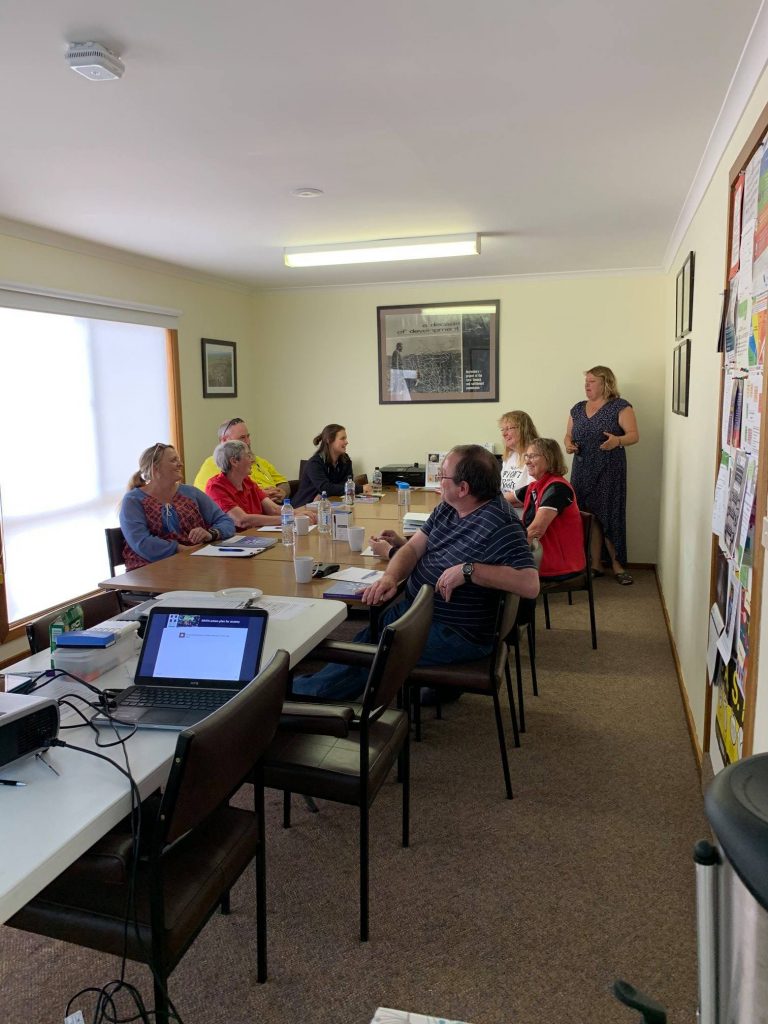
Ngaanyatjarra Country
Indigenous Rangers play a critical role in protecting the environment and managing country. In most places where they operate, they manage threatened species, manage the land using cool burns and fire and control feral animals – alongside developing tourism and cultural heritage activities.
The Indigenous Desert Alliance (IDA) runs an annual conference to bring together ranger groups from across the remote Southern Deserts to build Indigenous-led networks, leadership confidence and capability, increase skills relevant to Ranger groups and build advocacy for Indigenous land management. These rangers collectively manage an area approximately the size of Victoria.
The Forum is a highly regarded desert event that has been held annually since 2017, and focuses on maximising networking opportunities with an interactive program including workshops, tours, engaging conference sessions and stalls. It’s an important opportunity for Indigenous desert rangers to come together and build their alliance for personal and professional outcomes, to share their successes, challenges and opportunities, and to spend time with valued partners, stakeholders and experts.
Due to travel restrictions, the 2020 Southern Desert Rangers Forum and their Annual Conference were held online. The $25,000 grant IDA received from FRRR’s Strengthening Rural Communities program, funded by the Baxter Charitable Foundation, was originally intended to assist with the transport costs to bring five emergent remote ranger groups to Warakurna for the Forum. Instead, IDA used the funds to set up dedicated studios in Perth to run the events, with full technical support. IDA also purchased video conferencing equipment to enable the remote teams to participate in the events.
Despite meeting over Zoom, there was active participation and over 150 people in attendance over the three days the program ran, including 19 Australian Desert Ranger Groups from across the Southern Deserts, as well as rangers from the Misipawistik Cree Nations in Canada. There were presentations from Birriliburu Rangers, Rangers from APY Lands in SA, and Maralinga Tjarutja Rangers from Oak Valley.
Sessions included practical training components for rangers using GIS mapping software; co-design of education resources for weed eradication in the desert (developed in both Aboriginal language and in English); a presentation from the Threatened Species Commissioner; as well as open discussions around traditional knowledge of burning in the desert and implications for bushfires in populous coastal regions. Importantly, the highly-valued ‘Ranger to Ranger’ sessions still ran, where rangers develop and inform the priorities of the Indigenous Desert Alliance.
Emmanual Hondras, IDA Coordinator, said that there were unexpected outcomes resulting from the online delivery mode, including greater engagement between participants which he attributed to their increased comfort from being able to remain On Country.
“The IDA pivoted to ensure that our members in regional and remote Australia were still connected despite the scourge of COVID-19, providing the chance for leadership confidence and capability to grow through a new means, the opportunity for regional and remote priorities to be discussed and progressed, and the opportunity for these to be advocated to key political and bureaucratic leaders.
“Despite many people thinking it couldn’t be done, we managed to ‘keep the desert connected’ during a pandemic and during travel restrictions. It was a landmark event for Indigenous desert rangers in regional and remote communities.”
Emmanuel Hondras, IDA Coordinator
IDA used the learnings from this event to inform their Annual Conference, which was also run via video conference and attracted over 200 attendees. Thirty-one groups attended the Conference held in November – an astounding result, given that this was the first attempt at full forums / conferences via these means.
The $25,000 grant IDA received from FRRR’s Strengthening Rural Communities program, funded by the Baxter Charitable Foundation, was originally going to be used to assist with the transport costs to bring five emergent remote ranger groups to Warakurna for the forum. Instead, IDA set up dedicated studios in Perth to run the events, with full technical support. This is where the majority of total costs ended up falling, along with venue hire and catering. IDA also purchased video conferencing equipment to enable the remote teams to participate in the events.
IDA has since helped other not-for-profit organisations in the area, using their new-found knowledge and skills to assist with these organisations with their online events, which in itself is a great capacity building outcome.
Arakwal Country
Founded in 2015, The SHIFT Project Byron is a short-term educational transition program for women who are homeless or at risk of homelessness. Five staff, 12 volunteers and a governing committee of seven oversee the program that supports women navigate the challenges from homelessness to independence.
Lack of financial stability and economic independence are major factors contributing to homelessness, and SHIFT wanted to disrupt these persistent challenges in the Byron area, increase financial wellbeing, employability, and community connection through their new project – The Linen SHIFT.
The Linen SHIFT is an innovative social enterprise laundry service, providing transitional employment coupled with training, mentoring, and skill development to help disadvantaged women sustainably enter the workforce. Programs run for between three and 12 months, adapting to the unique needs of individual women, including employment offers / shift times for mothers and accommodating physical capability. Community connections are fostered through the CWA, and SHIFT employs a qualified support worker to assist participants to achieve their individual goals, address housing needs and underlying hardships.
The SHIFT Project applied to the ANZ Seeds of Renewal grant program at a critical point in its growth. The program was running as a small-scale, in-house opportunity for homeless women living at the SHIFT Project’s residential property in Byron Bay. The social enterprise model will allow for the program to be sustainable and self-funded in the long-term, but they needed initial funding to expand and relocate to a commercial venue, to meet increasing demand for participation from local vulnerable women. Several funders contributed to the project, including FRRR’s $14,265 grant to purchase an ironing roller.
The program successfully launched in March 2020 and thrived during the uncertain times of COVID. Fourteen women were employed over 10 months and provided with income and stability. The program has been supported by regular customers, and the business has been at capacity and is now planning to expand.
Letters of support from clients of SHIFT give glowing reviews about its management and impact. Elizabeth Jackson, President of Liberation Larder wrote: “The SHIFT Project has shown they are intelligent, creative, hard-working & reliable in their approach to growing their service for the benefit of women at risk of homelessness. With each new project they add to the social fabric of our community.”
The SHIFT Project takes pride in the community they have created, and with very good reason.
“Our women have provided feedback that since joining our team they feel safe, connected, encouraged and valuable – directly addressing the isolation and low self-esteem that poverty can generate.”
Anne Goslet, Managing Director The Linen SHIFT
And they are set to make an even bigger impact, with projections that in five years the project could support upward of 100 women to shift from disadvantage to independence.
Wiradjuri Country
The transition from teenager into adulthood is widely acknowledged as a tough one. As we leave behind childhood and enter our formative years, a greater sense of responsibility, identity and independence can be extremely overwhelming for some. For those living in remote, rural, and regional Australia, this new life-stage can be even more daunting, especially as many young people are forced to move out of familiar environments to further their education or find employment.
Wagga Wagga, in the Riverina region of New South Wales, currently has around 11,800 young people living in the area. While Wagga Wagga has a lot to offer its younger residents, from education to a vast range of sporting clubs, the youth unemployment rate sits at 11.6% (2016 Census data).
With a large portion of the population transitioning from adolescence into adulthood, headspace Wagga Wagga wanted to help make the process a bit easier.
Partnering with local organisation Youth Reference Group (YRG), headspace Wagga Wagga developed a program called “Adulting”, based on an idea developed at the Heywire Regional Youth Summit. The YRG is an active group of individuals aged between 16-25 who dedicate their time to issues that impact young people’s mental health. Through a mix of brainstorming and lived experience, the group was able to identify 10 aspects of adult life they wished they knew more about before they had to deal with the issues. The list included the voting process, understanding tax and superannuation, the maintenance of rental properties (including cleaning), organising healthcare (both private and public), the job interview process and making important appointments.
Using a $7,000 FRRR ABC Heywire Youth Innovation grant, funded by The Sally Foundation, headspace Wagga Wagga and YRG were able to hire a videographer to help produce a video for each topic, which was then distributed on social media.
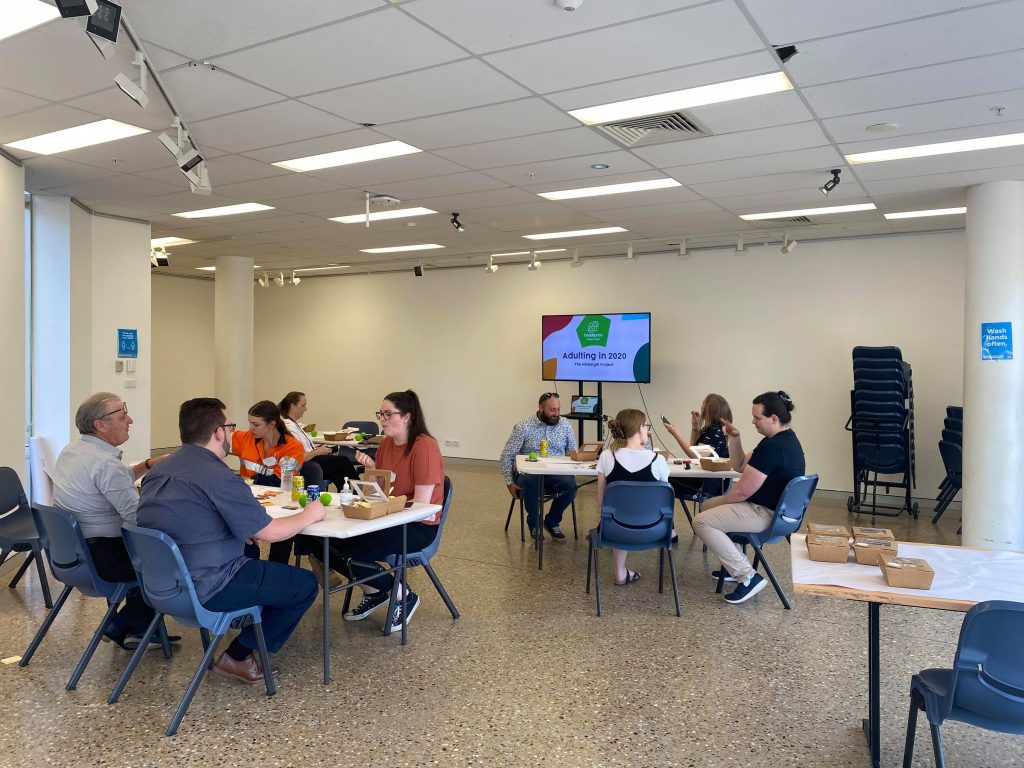
The videos were released over 10 weeks, via a Facebook page moderated by the YRG team. The “Adulting” videos reached 500 young people who now have resources to build practical life skills.
At the end of the program, the “Hindsight Project” took place for the ten young people who were instrumental in creating and curating the content. This provided an opportunity for reflection and discussion about the project and also a chance for networking.
COVID-19 restrictions made promoting the videos and authentic engagement with the content challenging. However, with the content still online and available for those who need it, the videos will continue to reach young people and provide them with tips and advice for their big move into adulthood.
In Coorow, WA, a rural town 270 km north of Perth, the community had been shaken by a series of tragic mental health incidents.
The township has a population of just 200 and is the business and social hub for many small surrounding localities in an area dominated by farming. The agriculture industry in WA’s mid-west is changing, with businesses amalgamating so that the family farm is now often part of a larger enterprise. Businesses rely more on casual workers, reducing the local population and increasing isolation, due to greater distances between farming families.
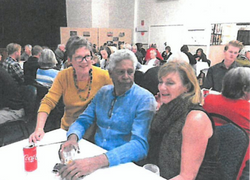
Coorow Community Resource Centre (CCRC) is a local organisation providing professional services to the community, and they clearly saw the need for more informal, activity-based gatherings to support the local community thorough a challenging time.
The In a Good Place program was the perfect fit to support this group in their aims. They successfully applied for a grant of $10,350, funded by CCI Giving, and got to work planning a series of motivational community dinners to encourage the Coorow community to come together for shared learning and social interaction.
The FRRR grant enabled the group to engage guests speakers for the ‘On Speaking Terms’ event – ordinarily the high cost of travel would reduce access to such talent, and guest speakers Peter Rowsthorn, Ernie Dingo and Karl O’Callaghan were a special drawcard to get the community together. The events were held at the Coorow District Hall in March, July and October 2019, on dates that worked within the local farming activities timetable for the people of the Shire of Coorow and surrounding shires of Perenjori, Carnamah and Moora.
Each event in the series also included presentations from mental health services in the region such as Wheatbelt Mens Health, Midwest Health service and the Desert Blue organisation. Dinners were catered by the CCRC and four school students from the area volunteered as wait staff. A ‘goodie bag’ was given to attendees to take away, including a Health Services in the area booklet compiled by the CCRC. The evenings were advertised and reported on by local newsletter, the Coorow Magpie Squawk.
Deborah Maley, Coordinater at CCRC said, “The Coorow CRC achieved everything we set out to with this program. We delivered three evenings with high profile speakers and had an amazing attendance to each and every one.
“Each speaker had a different way of putting forward their message and this meant that everyone could relate in different ways. All speakers created conversations within the attendees and also with the community as a whole.”
The group expected they might get 100 attendees to the event, but their smart plan enticed 224 people to attend the series, a remarkable outcome for a town of just 200 people. They have since reported that health agencies represented at the dinners have been contacted by community members following the info sessions, so they are hopeful that the message is reaching some of those local people that will benefit from mental health support.
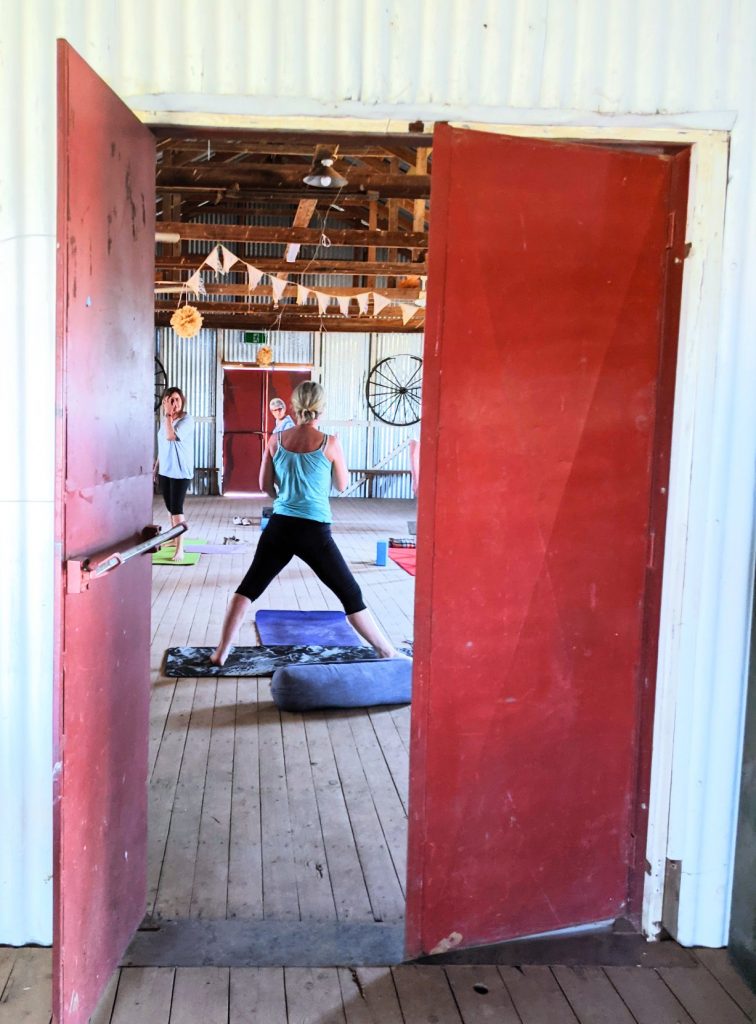
In the Bogan Shire of New South Wales, you will find the town of Nyngan. Like many remote farming towns, social isolation is a big issue within the community. Farmers and their families have had to deal with the effects of drought for years, placing extreme pressures on many people and businesses in the community. Financial pressure can often be a driving force behind social isolation in these communities. Social events and participation can be some of the first things to go when trying to save money. This can create a bigger divide for many adults, particularly farmers and their families, in the town.
CatholicCare Wilcannia-Forbes (CCWF) was established in 1996 and covers 52% of Western New South Wales. Their diverse programs offer support for parents and children, counselling, help with financial management, mental health services and programs specifically for men, Indigenous communities, and young people.
In partnership with Bogan Bush Mobile, CCWF created The Wellbeing Mobile, which included travelling out to small communities and isolated properties within a 130km radius of Nyngan, providing an outreach service for mental and emotional wellbeing for adults. This program was based on the success of the Bogan Bush Mobile early childhood education sessions, which focused on children aged 0-5. This new program was dedicated specifically to help support the adults and parents within the community.
A $150,000 Tackling Tough Times Together grant allowed CCWF to visit 11 towns over two years, and offer fortnightly two hour sessions ranging from remedial massage, yoga, exercise and nutrition, to body alignment, pilates, art therapy, counselling, clinical hypnotherapy, financial counselling and community wellbeing days.
The response to The Wellbeing Mobile was fantastic, with 300 people benefiting directly from the activities, and many more family members benefiting indirectly. The sessions were designed to help fight “drought fatigue” by giving families a break from the stressful and anxious period caused by drought and social isolation. In particular, the sessions were a big hit with mothers in the community. Bogan Bush Mobile early childhood education kept young children entertained while their mothers were able to enjoy the social interaction and the relaxing activities.
Organising these events to avoid shearing and harvest time was important in the sessions achieving high participation rates. Accommodating people that needed to travel was also an issue. To solve this problem, introducing Activity Days allowed some people to experience several activities during the day. Having multiple activity sessions over the duration of the project gave residents more opportunities to participate if they were unable to attend a class.
Executive Leader of Program Development and Delivery, Dorothee Crawley said “The feedback was fantastic, with one lady saying she had lived on her farm for 20-years and this was the first time she had interacted with her neighbours. The Wellbeing Day provided services that had never been available in the town before, and everyone thanked us for organising this event in their community.”

